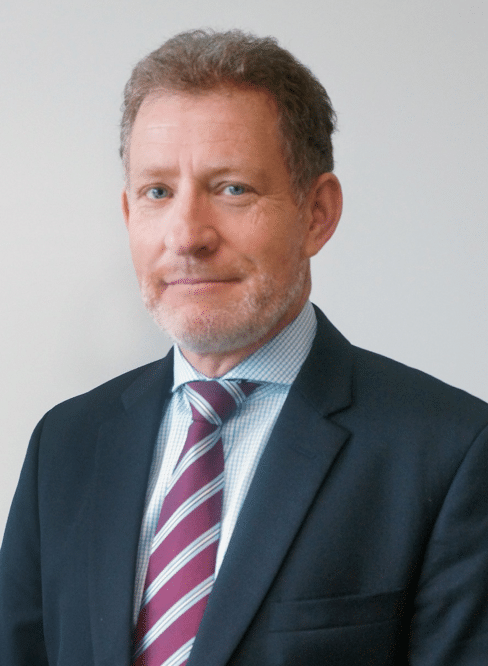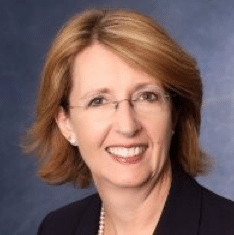 Those who remain on the fence about whether to study a Master of Business Administration often avoid taking the final step because of a few key questions.
Those who remain on the fence about whether to study a Master of Business Administration often avoid taking the final step because of a few key questions.
Namely, ‘how can I manage an MBA?’ and ‘when do I see a return?’
AIM has worked to answer those questions by developing an MBA program that challenges all preconceived notions of the traditional education experience.
Interactivity plays a big part in how AIM ensures MBA students receive a good return on investment. While Australian universities move further into the digital sphere with online classes and pre-recorded lectures that can be streamed at home, AIM has employed an online learning environment that allow students to interact with their facilitators and classmates, giving the impression of attending class in real time while connected online.
On-campus options in centrally located CBD campuses are still available at AIM and the ability to mix your delivery by unit, but the online interactivity has made it easier for students who don’t have access to the campus to feel like they are still part of the school’s community.
Students’ return on investment is also achieved by forgoing the old-school education rule book and bringing in people from the outside world for a new learning perspective and the emphasis on practical assessments students can relate back to their workplace – with no exams.
AIM Business School’s faculty are real-world business professionals with a wealth of experience, academic qualifications to support the theory and are able to bring their personal experiences into the classroom to ensure that what MBA students are learning can be directly attributed to the business world that they are already apart of.
Many of the facilitators also share their time between the classroom and being a practicing consultant, meaning not only do they offer real-world MBA knowledge, but are coming into class with the freshest and most topical business discussions for students to engage in. So, who are some of the faculty teaching the AIM MBA?
Meet the Masters – AIM MBA Faculty
Dr Angelina Zubac

“I can provide students with a tonne of practical examples, explain in which ways theory has a basis in real-life and can be very useful as a starting point for strategic decision-making, and help students appreciate that organisations are about people more than anything else”
Dr Zubac currently holds a Bachelor of Commerce, Bachelor of Arts, Graduate Diploma in Statistics and a PhD Business (Strategy). Her thesis research project explored the customer learning, and strategic planning/capability-building processes of accounting and software engineering firms from a resource-based view.
“I am keen to teach students about the tools and techniques that are used for decision-making and why it is important to understand the organisation’s industry environment, internal resourcing and the nature of its institutional environment.”
Dr Richard Carter

He holds an MBA, a PhD in Management, a Graduate Certificate in Entrepreneurship from Macquarie University and achieved Honours for a Bachelor of Commerce.
“I draw on a range of experiences, particularly in relation to leadership development where I’ve done a lot of coaching and use a personality and behaviour 360 to help leaders accelerate their careers.”
He holds an MBA, a PhD in Management, a Graduate Certificate in Management and achieved Honours for a Bachelor of Commerce.
Dr Carter says there are a number of benefits from facilitators with real-world experience – he believes it means the source of information is credible, and the knowledge has been tested in the real world and not just in an academic environment.
“I’ve been lucky enough to be the Design Director for large scale projects at Telstra, Woolworths and Chris O’Brien Lifehouse that have drawn on my PhD research and practical experience. In particular, the role of self-efficacy beliefs in work-related performance.”
Dr Lorne Butt

“My approach to working with our MBA students is to work with them on developing their understanding of the concepts and knowledge of each topic, and illustrating those with practical examples they can relate to.
“Something I do at the start of each cohort I teach is to ask students in the group or in discussion forums to tell me a bit about themselves, what they do and what they want from the unit. This helps me to tailor a suite of examples for each cohort, for each topic, that they can directly relate to themselves.”
With a doctorate in Philosophy in Management, Dr Butt is also accredited with an MBA, Bachelor of Science in Biological and Biomedical Sciences, Bachelor of Science in Environmental Biology, Diploma of Carbon Management and a Certificate IV in Project Management.
“The credibility that comes with building a successful career, and having the knowledge and skills to translate those career experiences to a transformational learning environment, is, I think, something that resonates strongly with students who choose to study with AIM.”
Dr Lenore Pennington

She had also worked as an economist for the Reserve Bank of Australia and ANZ and has delivering courses in Management at the University of Wollongong School of Operations, Management and Marketing, Australian Catholic University’s School of Business and Macquarie University’s Faculty of Business and Economics.
“I encourage students to think beyond financial and economic measures and to also consider the broader social and environmental impacts of organisations, which in turn can have broader societal economic impacts. I also encourage them to consider the causes and impacts of the more recent trend of ‘short termism.”
As the Facilitator for Economics for Managers, Dr Pennington has 30 years of corporate experience, and continuously maintains her current knowledge of Australian and global corporate activity.
Dr Pennington holds a Master of Industrial and Labor Relations and achieved Honours in a Bachelor of Economics. Her PhD, awarded by the Macquarie Graduate School of Management, examined the relationship between organisational culture and organisational commitment to sustainability.
The AIM MBA has exceptional faculty delivering much of the program and AIM are committed to ensuring this wealth of experience and knowledge is brought into the learning. The structure of the AIM MBA program, the impact of interactive learning and the ability to apply your assessments within your workplace are key to setting MBA students up for success.
To find out more on the AIM MBA, download your free MBA guide today.









